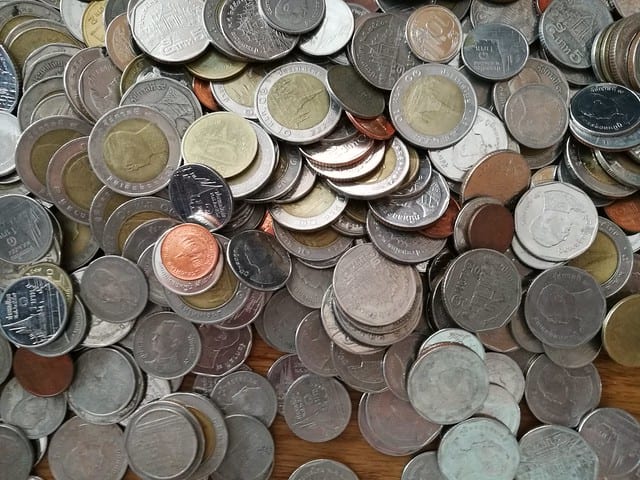
Money is How We Keep Score
I believe Ted Turner said, “Life is a game. Money is how we keep score.”
A couple of months ago I bought a new laptop computer. Actually my wife and I traded in our two iPads and my desktop Mac and each bought a new laptop. I remember reflecting on the purchase and thinking about having money sure makes life easier.
There are many things I enjoy about my new laptop. I am writing this post on it right now. My desktop Mac was about eight years old and it took me time and effort to understand this new machine. I had many questions and I am growing to appreciate the answers.
Each of our new laptops has more memory than my desktop did. They are faster and do more. I am growing accustomed to using a trackpad instead of a mouse. Life is getting better and the relationship between me and my laptop is becoming a friendship.
I am glad we were able to figure out a way to buy our laptops. There are times, though, when I wonder whether we could have used that money in other ways.
It seems easy for most of us to justify spending our money to buy things for ourselves. Many of us are generous to others in times of crisis, but we tend to be more generous with ourselves.
I do not believe there is much good in making ourselves suffer, denying ourselves what we need. Some of us, though, believe we can keep score in the game of life without merely counting our money.
Is life a contest to purchase the most interesting possessions? Does the person with the most toys at the end win?
Can our bank accounts and credit card balances tell us who is winning the game?
Monks and Money
The monks I know seem to be playing a different game.
I am an Oblate at a Benedictine hermitage. Benedictine monastic communities follow the Rule of Benedict, written over 1,500 years ago. The Rule guides almost every aspect of a community’s life.
In one short, direct chapter of the Rule Benedict describes how monks view private property. His approach may be as far from Ted Turner’s, and our culture’s, as it is possible to be.
Benedict says, “Let no one presume . . . to have anything of his own — anything whatever, whether book or tablets or pen or whatever it may be . . . Let all things be common to all, as it is written, and let no one say or assume anything is his own.”
As far as Benedict is concerned, it is not money which makes the world go around.
He includes descriptions of the kinds of clothing and beds communities aught to provide for monks. Monastic life is not about monks being willing to accept substandard treatment.
Obviously, monastic communities have financial concerns like any other kind of community. Benedict also envisions monasteries being financially independent. Many monastic communities face significant financial struggles.
New Camaldoli Hermitage is on a hill overlooking the Pacific Ocean in Big Sur, California. There are regular challenges, whether from brushfires in the area or erosion caused by storms. The hermitage has needed to pay regular attention to the driveway which allows access from Highway 1. Construction, and reconstruction, costs are a responsibility the community needs to bear.
Monastic communities are not groups of idealistic people living in a fantasy world. They face specific financial challenges and struggles.
The difference for them is they do not measure their significance or value by the amount of money they have. They believe life is more than money.
What Does Our Money Do?
I do not believe how much money we have is an accurate way to measure the quality of our lives. It is more important to me to ask what our money is doing, or what are we doing with our money?
Many of us worry about whether we have enough money, and whether we will run out. We are concerned by economic difficulties and depend on a good return from our investments. Some of us try to find jobs which will pay us as much as possible so we can wrap ourselves in the luxuries money can buy.
There is noting wrong with wanting to be rewarded for what we do and how we contribute. Not all contributions, though, are financially rewarding.
It can be more challenging to measure the quality of our lives without relying on money. Other ways of measuring may more accurately reflect our values and priorities.
We can easily be caught up in how it feels to have the power money can give us. It is important for us not to lose sight of the difference between having value and being able to buy things.
How We Choose to Relate to Our Money
We have a choice to make. Some of us will decide we see money like Ted Turner, our way of measuring where we are in life’s competition. Others of us will choose to view money and property more like Benedict and the men and women who follow his Rule.
It is not an all or nothing, once for ever decision for us. We make an ongoing series of decisions each day.
Most of us do not have a community on which we can rely to meet our basic needs like monks do. We probably do not have the financial resources of Ted Turner, either. Compared to the population of the world, though, we are probably winning the financial game of life.
Each of us has decisions to make. Our relationship to our money is a complex one.
It is easy for us to assume we have our money under control. We do what we can to plan and prepare for the future, to behave generously, to be wise.
Money has a way of working its way around our choices.
How will we decide to relate to our money today?
Who will influence the ways we understand our money this week?
[Image by pockethifi]
Greg Richardson is a spiritual life mentor and coach in Southern California. He is a recovering attorney and a lay Oblate with New Camaldoli Hermitage near Big Sur, California. Greg’s website is StrategicMonk.com and his email address is [email protected].












